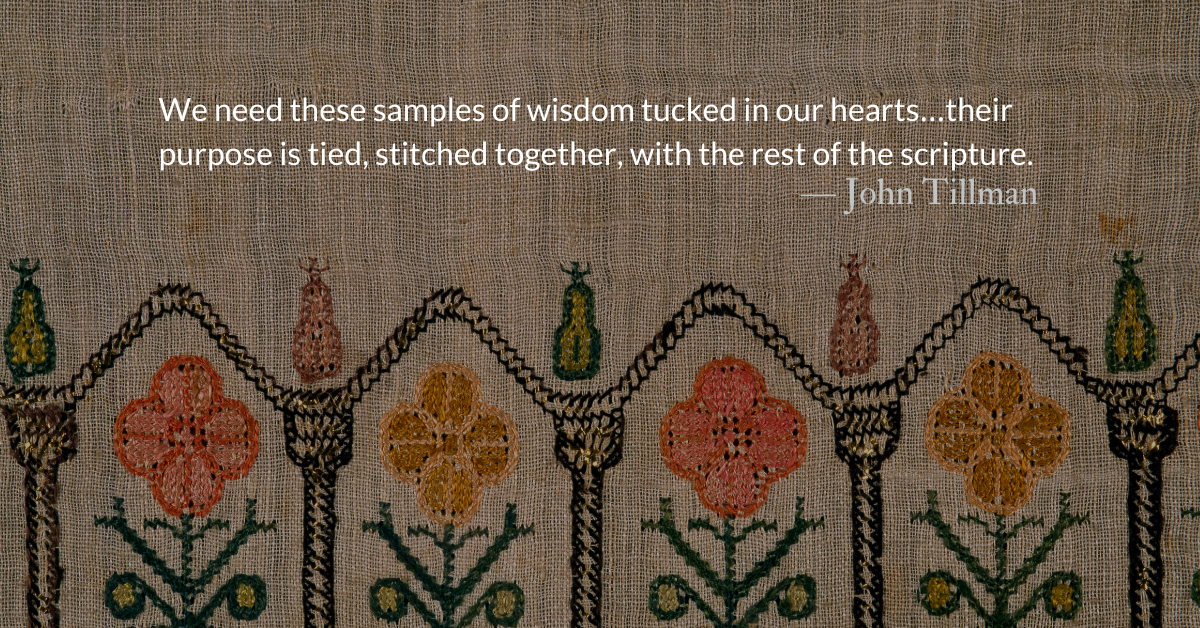Scripture Focus: Proverbs 5.20-23
20 Why, my son, be intoxicated with another man’s wife?
Why embrace the bosom of a wayward woman?
21 For your ways are in full view of the Lord,
and he examines all your paths.
22 The evil deeds of the wicked ensnare them;
the cords of their sins hold them fast.
23 For lack of discipline they will die,
led astray by their own great folly.
Reflection: Emulating Christ’s Love
By John Tillman
Famous couples often make romance appear flawless and easy.
Over the pandemic, while Stephen Colbert’s The Late Show was filming in his home, his wife, Evie, and the couple’s sons were the crew of the production. Many people fell in love with the on screen, real-life romance of the Colberts.
Everyone loves romance. We love love. We love romantic movies, music, and news about the romances of our favorite celebrities. People respond to cute moments of celebrity couples on social media with “#Goals” as a way of calling their romance an aspirational pursuit.
In Ragtime, a musical I am now rehearsing, the characters witnessing Coalhouse’s wooing of Sarah question their own relationships. “Haunting me, and somehow taunting me, my love was never half as true,” we sing. We do this in life as well. We idealize what we see of others’ relationships and despair at the problems we face in our own.
Watching idyllic romances play out can be inspiring but there are also famous flame-outs and failures. There are multiple examples of famous couples whose “perfect” marriages broke up over infidelity. No matter how perfect a relationship might seem, the things we see from the outside don’t sustain a marriage. Public infidelity has proven over and over that there is no wife (or husband) “hot enough” to keep a cheat from cheating. Attractiveness, public affection, adoring fans supporting you, and even extreme wealth can’t ensure marital purity.
Proverbs chides its readers, “Why commit sexual sin?” There are no benefits. Those who do this, do so because of folly and a lack of wisdom. The writer compares it to intoxication and to being tied up and trapped in a snare of sin. The beginning of this speech (Proverbs 5.1-6) tells us about the adulteress. She wanders aimlessly. She “gives no thought to the way of life.” She is bitterness and harshness covered over with smooth honey and oil.
Cultivating loving relationships is not just for romantic couples. All our ways, public and private, are to be honoring to our God who is with us. Singles also need life-giving, loving relationships. Loving relationships (whether sexual or platonic) can be achieved through the wisdom shared here. Rather than bitterness, let us spread the sweetness of Christ. Rather than thoughtless, selfish pursuits, let us emulate Christ’s self-sacrificing purpose for others.
Emulating Christ’s love enriches every relationship from the inside out.
Divine Hours Prayer: The Request for Presence
O Lord, watch over us and save us from this generation forever. — Psalm 12.7
Today’s Readings
Proverbs 5 (Listen – 2:08)
Psalm 66-67 (Listen – 2:42)
Read more On Balaam
The Israelites’ culture was most susceptible to the sexual temptations of ancient fertility cults…Greed is the fertility god of our age and our culture is addicted to it.
Read more about Restoring Relationship
The heartbreak of losing romantic intimacy causes grief unlike anything else. God understands this heartbreak and offers hope to those suffering.











